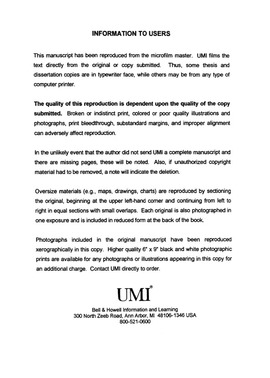| dc.contributor.advisor | Greene, Barbara A., | en_US |
| dc.contributor.author | Ravindran, Bhuvaneswari. | en_US |
| dc.date.accessioned | 2013-08-16T12:30:43Z | |
| dc.date.available | 2013-08-16T12:30:43Z | |
| dc.date.issued | 1999 | en_US |
| dc.identifier.uri | https://hdl.handle.net/11244/5860 | |
| dc.description.abstract | The purpose of this study was to examine the role of achievement goals (learning goal, performance goal, and future goal), epistemological beliefs (authority, certain knowledge, innate ability, simple knowledge, and quick learning), and meaningful cognitive engagement (deep processing and self-regulation) and shallow cognitive engagement in the prediction of knowledge integration. One hundred and one preservice teachers participated in the study and completed an 84-item survey that contained statements on achievement goals, cognitive strategies and epistemological beliefs. A part of a course unit exam and an application paper were scored to obtain two measures of knowledge integration. Regression analyses revealed that both goals and beliefs played an important role in the prediction of cognitive engagement. Learning goals, authority belief and certain knowledge belief were the best predictors for meaningful cognitive engagement. Performance goals, simple knowledge and certain knowledge beliefs were the best predictors for shallow cognitive engagement. Shallow cognitive engagement was the best predictor for the knowledge integration exam measure, with a negative relationship. None of the independent variables came as predictors for the knowledge integration paper measure. Limitations of the study and implications for future research and for practice were discussed. | en_US |
| dc.format.extent | xiii, 148 leaves ; | en_US |
| dc.subject | Cognitive learning. | en_US |
| dc.subject | Education, Educational Psychology. | en_US |
| dc.subject | Teachers Training of. | en_US |
| dc.subject | Education, Teacher Training. | en_US |
| dc.subject | Cognitive styles. | en_US |
| dc.subject | Student teachers. | en_US |
| dc.subject | Learning, Psychology of. | en_US |
| dc.title | The role of goals, beliefs, and cognitive engagement in the prediction of preservice teachers' knowledge integration. | en_US |
| dc.type | Thesis | en_US |
| dc.thesis.degree | Ph.D. | en_US |
| dc.thesis.degreeDiscipline | Department of Educational Psychology | en_US |
| dc.note | Chair: Barbara A. Greene. | en_US |
| dc.note | Source: Dissertation Abstracts International, Volume: 60-08, Section: A, page: 2801. | en_US |
| ou.identifier | (UMI)AAI9941851 | en_US |
| ou.group | Jeannine Rainbolt College of Education::Department of Educational Psychology | |
